Marchés
Lors de la conception d’une intervention humanitaire et de la prise de décisions quant à l’utilisation des transferts monétaires, l’analyse générale des options de réponse doit inclure une analyse de marché. Il est prouvé qu’offrir un soutien ciblant le fonctionnement des marchés accélère la reprise et accroît la résilience dans les zones affectées par une catastrophe.
De nombreuses organisations ont investi dans la mise au point d’outils visant à faciliter l’analyse de marché et réfléchissent à la mise en place de programmes basés sur les marchés plus holistiques. Elles envisagent des interventions tirant profit du marché (basées notamment sur des transferts monétaires aux populations affectées), ainsi que des interventions soutenant directement les marchés (comme l’octroi de subventions conditionnelles aux vendeurs/euses pour la remise en condition du marché).
Initiatives associées
Contenu associé

1.2 Introduction à l’analyse de marché
Cours
Ce cours de 30 minutes offre une introduction à l’analyse de marché pour les contextes d’urgence. Il contient des contributions d'experts dans ce domaine. Ce cours a été développé en collaboration avec l'International Rescue Committee et le CALP Network et grâce au financement d’USAID/OFDA et de l’Agence Suisse pour le Développement et la Coopération. Il est destiné aux...

2.4 Un guide pratique pour l’analyse de marché
Cours
Ce cours en ligne de 3.5 heures vise à fournir aux équipes qui conduiront des analyses de marchés en contextes humanitaires une compréhension approfondie de la théorie et des étapes à suivre afin de leur permettre de comprendre le pourquoi et le comment du processus à suivre. Les participants seront guides à travers un scenario d'analyse de marchés d'urgence. Ce cours s'appuie sur...
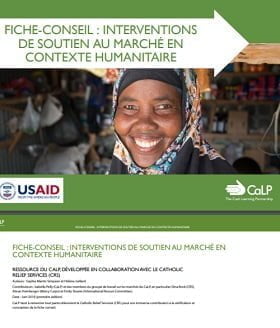
Fiche-Conseil : Interventions de soutien au marché en contexte humanitaire
Guides et outils
La fiche conseil définit le programme de soutien au marché en contexte humanitaire et le décrit dans la pratique. Elle permet aux praticiens humanitaires d’envisager systématiquement des interventions de soutien au marché, parallèlement à d’autres activités du programme. Le champ d’application comprend des interventions de soutien au marché axées sur l’offre/la disponibilité...
Thematic lead
Latest

Monitoring for MPGs: Ethiopia
Guidelines and Tools
DRC partnered with graduate students from the Fletcher School at Tufts University, to design three quantitative and qualitative monitoring tools to gauge the effect of MPGs at household and community levels (namely household survey, key informant interview and community group discussion templates). This...
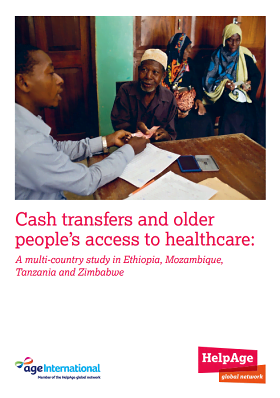
Cash Transfers and Older People’s Access to Healthcare: A Multi-Country Study in Ethiopia, Mozambique, Tanzania and Zimbabwe
Report
This report presents the findings of the Social Protection and Access to Health Services for Older People in Ethiopia, Mozambique, Tanzania and Zimbabwe study into the relationship between cash transfers and older people’s access to health services, carried out by Development Action on behalf of...

Cash alone is not enough: a smarter use of cash
Guidelines and Tools
Cash based interventions (CBIs) enable crisis affected people to make choices and prioritise their own needs. They also support markets critical to survival and recovery of communities. NRC is committed to increasing the use of cash across its programmes. Yet, cash based interventions are not a...

Workshop on Emergency Cash Transfer – Executive Summary
Rapport
During the past two years, partners in Madagascar have been supporting 13 different type of cash programs and have targeted about 1.2 million people. This multi-partner approach has created challenges for technical and institutional coordination. To improve coordination at technical and strategic levels,...

Scaling-up CTP in Somalia: Reflecting on the 2017 Drought Response
Report
This report summarises discussions that took place during a half-day workshop in September 2017. It built on issues identified as needing action in May, as outlined in the ‘Looking back to move forward: Building on learning from 2011 to strengthen the 2017 drought response in Somalia learning report’.
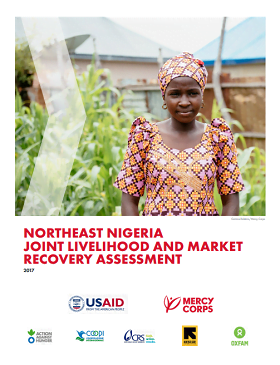
Northeast Nigeria joint livelihoods and market recovery assessment
Report
Mercy Corps Nigeria, in conjunction with Action Against Hunger, Cooperazione Internazionale, Catholic Relief Services, the International Rescue Committee and Oxfam undertook the assessment across the three most affected states in Northeast Nigeria; Adamawa, Borno and Yobe, to better understand...

A Review of Inter-Agency Collaboration for CTP Delivery
Report
Recent global initiatives have reaffirmed the potential for Cash-Transfer Programmes (CTP) to effectively and efficiently meet a wide range of disaster-affected populations’ needs while preserving dignity and choice. Although much work has been done in advocating for the benefits of CTP and enhancing...

Looking Back to Move Forward: Building on Learning from 2011 to Strengthen the 2017 Drought Response in Somalia Learning Report
Report
This report provides a summary of the discussions that took place during a half-day reflection workshop in May 2017. More than 40 people from national and international NGOs, the UN, donors and research organisations came together to consider lessons from the 2011 drought response, reflect on the use of...
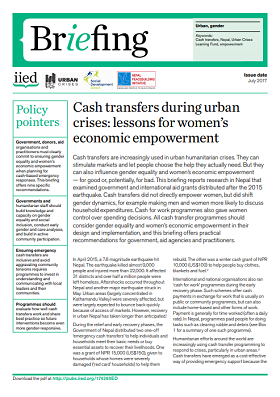
Cash Transfers During Urban Crises: Lessons for Women’s Economic Empowerment
Guidelines and Tools
Cash transfers are increasingly used in urban humanitarian crises. They can stimulate markets and let people choose the help they actually need. But they can also influence gender equality and women’s economic empowerment — for good or, potentially, for bad. This briefing reports research in Nepal...

Real time evaluation report for Kenya Red Cross Society
Report
After launching of its first Drought Emergency Appeal, Kenya Red Cross Society undertook a real time evaluation of its cash transfer response in May 2017 to find out what was working or not working in the KRCS emergency cash transfer response to enable decision making in the remaining period of the...

Is cash better than food vouchers for Syrian refugees?
Report
A comparative analysis of the effectiveness of unrestricted cash and food restricted voucher assistance modalities for Syrian refugee households’ food security in Jordan and Lebanon.

The Financial Journey of Refugees Full Report
Report
This document details how refugees and migrants from the Middle East, South and Central Asia and East, West and North Africa finance their journeys and manage money along the way.
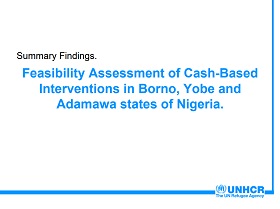
Feasibility Assessment of Cash-Based Interventions in Borno, Yobe and Adamawa states of Nigeria
Report
Outputs
• Analyse the feasibility and available response options for
potential CBIs covering basic needs, livelihoods and
support to vulnerable persons, and moving forward
toward MPGs
• Recommendations and action points……
• Support the Design of a CBI intervention and develop SOPs (2017)
•...
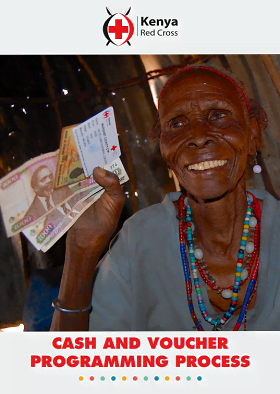
Kenya Red Cross Society’s – Cash and Voucher Programming Process
Guidelines and Tools
The document has been developed to highlight the general process that Kenya Red Cross Society uses when implementing Cash and Voucher programs/operations. Its a summarized version of Kenya Red Cross Society’s Standard Operating Procedure.

Kenya Red Cross Society Using New Technology to Reach Communities in Hardship Areas
Report
Kenya Red Cross Society responded to the severe drought through cash transfers in Marsabit county. Unlike an earlier drought, where KRCS used manual system to pay beneficiaries in the same geographical area, this year the organisation used a payment technology provided by a company called Compulynx....

Lessons from Northern Uganda in addressing gender based violence
Report
This case study summarises Action Against Hunger work in North Uganda. ACF aims to empower women in Northern Uganda using a two pronged strategy; a) cash transfers, skills training and VSLAs for income generating activities, and b) interventions to prevent violence against women at the household...
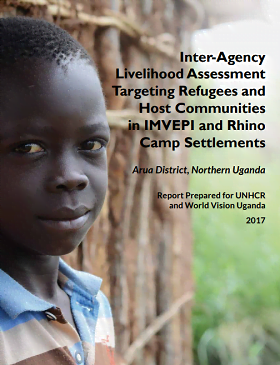
Inter-Agency Livelihood Assessment Targeting Refugees and Host Communities in IMVEPI and Rhino Camp Settlements Arua District, Northern Uganda
Case Study
This inter-agency needs assessment by World Vision Uganda (WVU), UNHCR and Caritas was conducted in two settlement areas of Rhino and Imvepi located in the West Nile Region of Uganda. The Imvepi settlement is the most recently opened area (February 2017) for resettlement and located about 72km east of the...
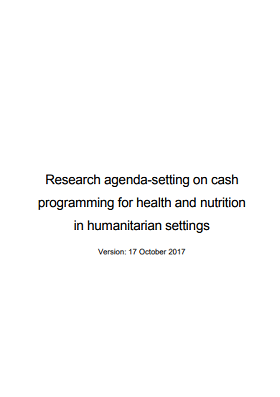
Research agenda-setting on cash programming for health and nutrition in humanitarian settings
Report
While the evidence base for cash transfer programming (CTP) in humanitarian contexts is more established for food security, it is very limited for health. The aim of this study was to develop a research agenda on CTP for health and nutrition in humanitarian settings.
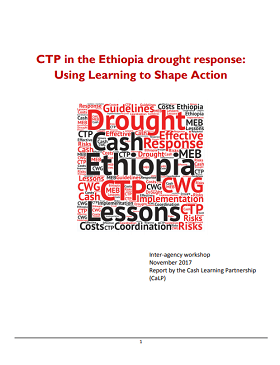
CTP in the Ethiopia Drought Response: Using Learning to Shape Action
Report
This workshop, convened by the CALP Network and the Ethiopia Cash Working Group, reflected on the use of cash transfers in the 2017 drought response. Key findings were: Cash helped address immediate needs and contributed to meeting some of the drought response objectives. There were significant...
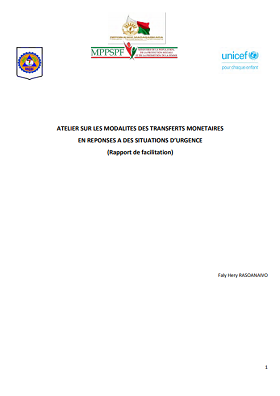
Atelier sur les Modalites des Transferts Monetaires en Reponses a des Situations D’urgence (Rapport de facilitation)
Rapport
During the past last two years, partners in Madagascar have been supporting 13 different type of cash programs and have targeted about 1.2 million people. This multi-partner approach has created challenges for technical and institutional coordination. An emergency cash group was formed in 2016 under the...
